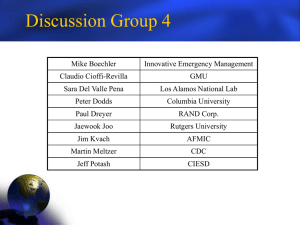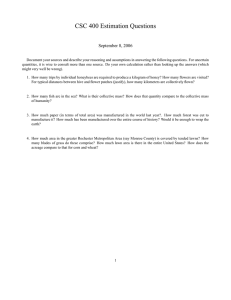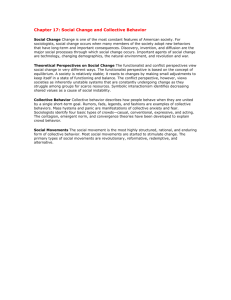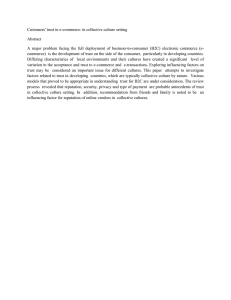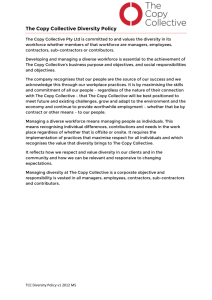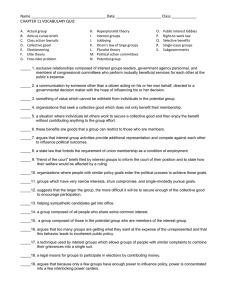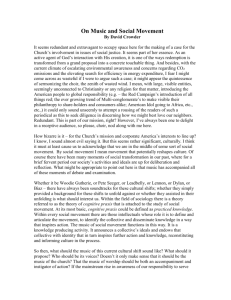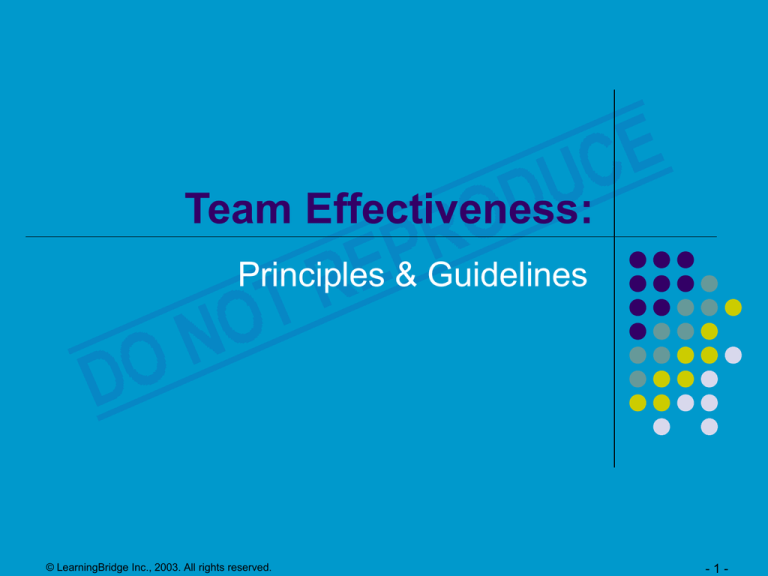
Team Effectiveness:
Principles & Guidelines
© LearningBridge Inc., 2003. All rights reserved.
-1-
What Do I Need to Know
about Teams?
© LearningBridge Inc., 2003. All rights reserved.
-2-
What is a Team?
A relatively small number of people
With complementary skills
Who are committed
To a common purpose,
Set of performance goals,
And approach
For which they hold themselves mutually
accountable
© LearningBridge Inc., 2003. All rights reserved.
-3-
All Groups are Not Teams. Teams:
Are characterized by interdependency
Often share leadership roles
Express individual and mutual accountability
Have specific team purposes that the team delivers
Have collective work products
Encourage open-ended discussions and active problemsolving at meetings
Measure performance against collective work products
Do real work together
© LearningBridge Inc., 2003. All rights reserved.
-4-
Teamwork Represents Values that:
Encourage listening and responding
constructively to the views expressed by others
Give others the benefit of the doubt
Provide support
Recognize the interests and achievements of
others
John R. Katzenbach and Douglas K. Smith, “The Discipline of Teams”, Harvard Business Review, March-April, 1993, pp. 111-120
© LearningBridge Inc., 2003. All rights reserved.
-5-
Characteristics of Losing Teams
Dominated by one individual
Compromise between two competing business
strategies
Engage in groupthink
Not all team members contribute
© LearningBridge Inc., 2003. All rights reserved.
-6-
Winning Teams
Trust
Clear time frame and agreed upon goals
Get facts and do analyses before making
decisions
Divide responsibilities
All team members contribute
Challenge and play devil’s advocate
© LearningBridge Inc., 2003. All rights reserved.
-7-



